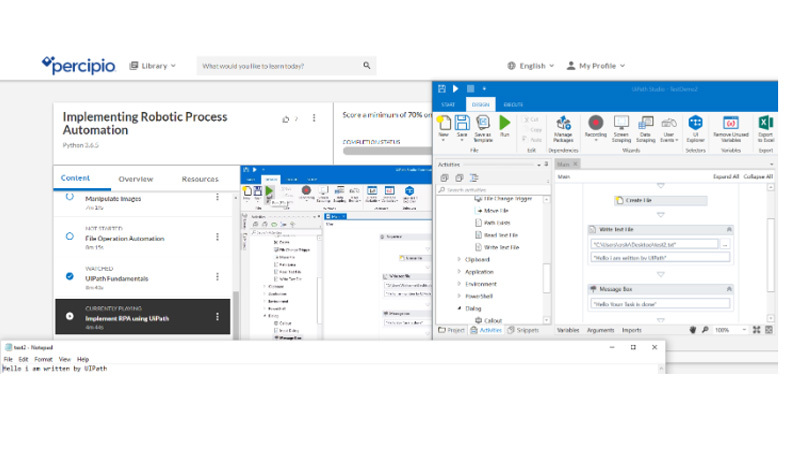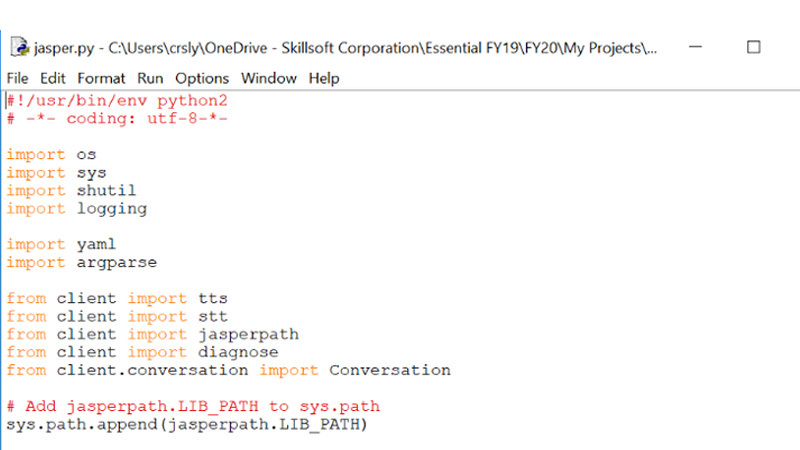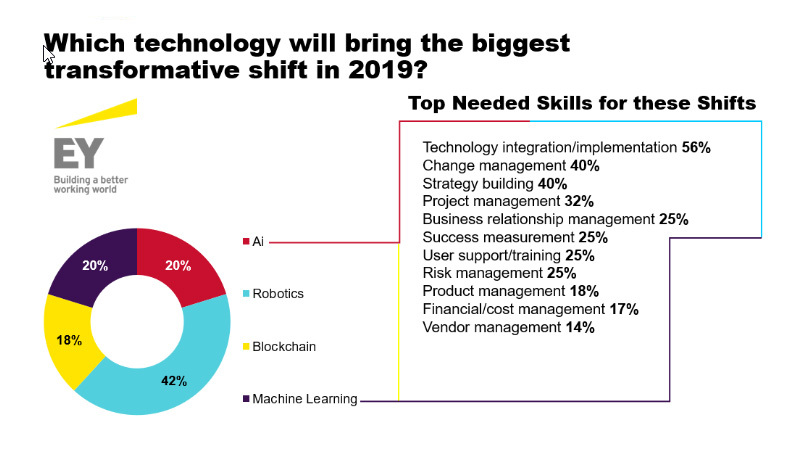What is a Skills Gap? (And Why It Matters)


While there is a lot of discussion around the adoption of artificial intelligence (AI), machine learning, and robotic process automation (RPA), too often such conversations overlook the subject of scale and the reality that most of these trends are not technically ready for scaled out operations. Moty Fania, principle engineer for big data analytics at Intel IT, spent some time at the recent Strata conference highlighting this and stressed the importance of process as fundamental to the success of any AI project.
He observed, “Developing an excellent AI model(s) that solves a business problem is essential but not sufficient. Successful AI implementation requires deep integration into business processes and the ability to continuously and rapidly deploy AI models to the production environment of a biz domain.”
After I heard Moty speak, I thought I’d try an experiment. On my own time, I attempted to educate myself on intelligent automation programmes like UiPath Orchestrator and Jasper Ai, an open source Python-based script for Rasberry Pi.
It was great fun watching my creations come to life, and below are some screenshots of my efforts. This exercise taught me an invaluable lesson – without certain critical pieces like "a real concept" and a "solid re-usable architecture”, my work was doomed to fail.


Where to start?
Daniel Del Moro, technical consultant for UiPath, has in the past stated that he would never pursue a live test, evaluation or implementation until the customer demonstrated that they fully understand their business process and what specifically they are targeting for improvement. However, such an approach is akin to the chicken and egg scenario because only when we first identify the foundational process of securing intelligent data can we effectively extract value-based data from automated solutions.
I like the way my colleague Kristin Shackelford explains it: “Organizations realise the competitive advantage and efficiencies these intelligent technologies promise to fulfill, but the issue is that many organisations have not harnessed and analysed data effectively to align these self-enabled systems properly. Instead, we see organisations skipping ahead to AI/IA before setting the proper foundation (both in terms of process and technology) which impairs the expected outcome and causes frustration. With the right data analysed for the positive predictive outcome, the process that connects to yield this result is identified within the business, and then the automation whitespace becomes a lot more defined.”
Without due process, what you are automating holds no value. Only with the right information can an organisation determine the corresponding improvements that will connect the right architecture to your technologies and people. Remember, data is king, and without it, enterprises do not have the necessary evidence upon which to build a business case so they can even begin investigating themes like AI and RPA.
The best course of action
Start with the correct data, for example, identifying bottlenecks and cost-of-delays, which will result in time savings and earn executive buy-in. Having a better understanding of the processes and designs also is recommended as it opens everyone to the optimal benefits and creates the opportunity to gather together the key stakeholders from across the entire business. It is also critical to have the right people with relevant skill sets. As this chart from EY illustrates, these skillsets sets are continually changing.

Original source: EY
This is where Skillsoft Aspire learning journeys can help. We take roles commonly found in organizations today and provide a sequenced path of instruction that moves a learner towards an aspirational role. These intentionally designed journeys are not simply curated learning paths assembled because there is a relationship, but journeys that build upon each other and contain new content created specifically for the critical skills required for each aspirational role.
We aim to build and make available by the end of the year at least 16 specific journeys around Data Science, Machine Learning, AI, Security, and DevOps. Each journey comprises at least 50-80 hours of courses plus optional multimodal content like videos and books, plus an additional 10-12 hours of practice labs, certification prep, and assessments. Percipio customers with access to Skillsoft’s Technology and Developer content library automatically receive all Skillsoft Aspire learning journeys.
Christopher Sly is a Solution Principal, IT & Digital at Skillsoft EMEA.
We will email when we make a new post in your interest area.

